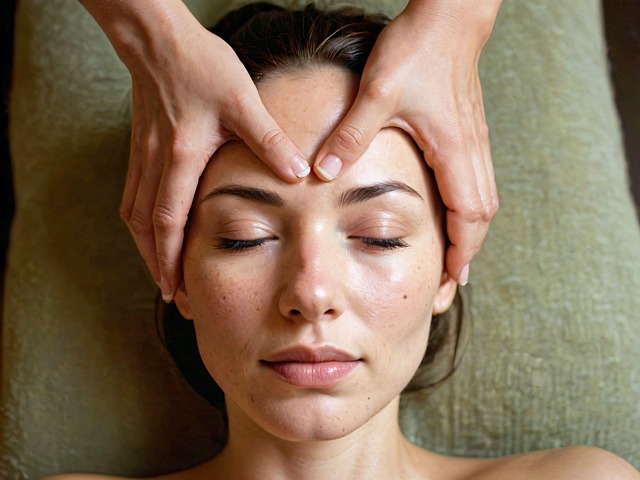Cold water immersion, including cold plunges or ice baths, is a natural method to enhance athletic recovery. By reducing inflammation, expediting muscle healing, and stimulating endorphin release, this technique improves overall athletic performance. Regular cold plunges post-workout can prevent injuries, increase endurance, and speed up recovery times for athletes, making it a valuable tool in their routines.
Looking to speed up your athletic recovery and reduce inflammation? Cold water immersion could be the secret weapon you’ve been seeking. This natural approach, popular among athletes, involves submerging yourself in cold water after exercise to combat soreness and swelling.
This article explores the science behind inflammation and its impact on athletes, delves into the benefits of cold plunges, offers tips for safe integration into your post-workout routine, and highlights why this simple therapy is gaining traction among top performers as a game-changer for muscle recovery, injury prevention, and enhanced athletic performance.
Understanding Inflammation and Soreness: The Body's Response to Exercise
When you engage in physical activity, especially intense exercise or heavy training sessions, your body responds by releasing chemicals that initiate an inflammatory process. This response is a natural defense mechanism designed to protect and heal tissues, but it can also lead to post-workout soreness and discomfort. Inflammation is part of the body’s healing process, helping to repair damaged muscles, tendons, and ligaments. However, prolonged or excessive inflammation contributes to muscle stiffness, reduced range of motion, and decreased athletic performance.
Cold water immersion, such as a cold plunge or ice bath, has emerged as an effective strategy for athletes to combat this issue. The shock of cold water triggers a series of physiological reactions that can significantly reduce inflammation and sore muscles. By exposing the body to cold temperatures post-workout, athletes can promote faster recovery, alleviate discomfort, and enhance overall athletic performance. This therapeutic practice is gaining popularity among sports enthusiasts and professionals alike as a game-changer for injury prevention and optimal physical well-being.
Cold Water Immersion: A Natural Approach to Reduce Inflammation
Cold water immersion, or cold plunging, has emerged as a natural and effective method to reduce inflammation and support athletic recovery. By submerging oneself in cold water, typically below 59°F (15°C), for a brief period after intense physical activity, athletes can experience numerous benefits. This practice stimulates the release of endorphins, our body’s natural painkillers, which can help alleviate muscle soreness and inflammation associated with strenuous workouts or injuries.
The cold water therapy is known to inhibit nerve signals that transmit pain to the brain, providing instant relief. It also promotes blood flow and circulation, accelerating the removal of metabolic waste products and reducing swelling in overworked muscles. Regular cold plunges can enhance athletic performance by improving endurance, strength, and flexibility while simultaneously aiding in injury prevention by reducing muscle stiffness and inflammation.
Benefits of Cold Plunges for Athletes: Accelerating Recovery and Enhancing Performance
Cold plunges offer a powerful tool for athletes looking to enhance their recovery process and boost performance. This simple yet effective practice involves submerging oneself in cold water, typically an ice bath or cold pool, immediately after intense physical activity. The benefits are multifaceted; it helps reduce muscle soreness and inflammation, key factors contributing to delayed onset muscle stiffness (DOMS). By constricting blood vessels and limiting swelling, cold water therapy accelerates the removal of metabolic waste products from exhausted muscles, promoting faster healing.
Additionally, regular cold plunges can improve athletic performance by increasing tolerance to fatigue. The exposure to cold stimuli triggers a range of physiological responses, including increased circulation upon rewarming, which can enhance oxygen and nutrient delivery to working muscles. This process supports better muscle contraction and endurance during future workouts or competitions. As such, incorporating post-workout cold water immersion into an athlete’s routine may contribute to injury prevention by reducing the risk of overuse injuries linked to chronic inflammation.
Incorporating Cold Therapy into Your Routine: Tips for Safe and Effective Post-Workout Practice
Incorporating cold therapy into your post-workout routine is a game-changer for athletic recovery. A cold plunge or ice bath can significantly reduce inflammation and soreness, providing much-needed relief to overworked muscles. The benefits of cold water therapy for athletes are vast; it helps constrict blood vessels, which in turn reduces swelling and minimizes damage to muscle fibers. This process accelerates the healing process, ensuring faster recovery times between intense training sessions.
For effective practice, start by gradually exposing yourself to colder temperatures after exercise. A dip in a cold body of water, such as a natural lake or an ice-cold tub, can be highly beneficial. Begin with shorter durations, around 10-15 minutes, and monitor your body’s response. It’s crucial to maintain proper hydration before and after the cold plunge to support overall athletic performance and prevent injury. Always ensure safe practices by consulting professionals for personalized guidance, especially if you have any health concerns or conditions that might affect your tolerance to extreme temperatures.
Cold water immersion, or cold plunging, has emerged as a powerful tool for athletes seeking to enhance their recovery and performance. By employing this natural approach, such as taking an ice bath after intense exercise, individuals can effectively reduce inflammation and muscle soreness. The benefits of cold therapy extend beyond immediate relief, contributing to injury prevention and supporting long-term athletic goals. Incorporating post-workout cold water immersion into your routine may be a game-changer for accelerating recovery and achieving optimal athletic performance.
